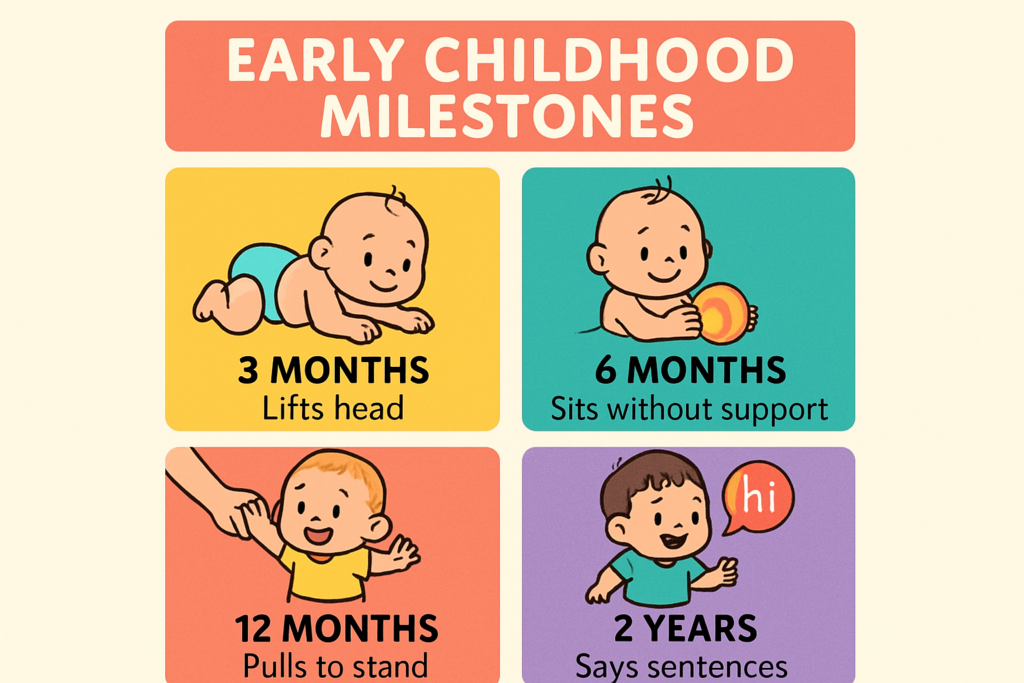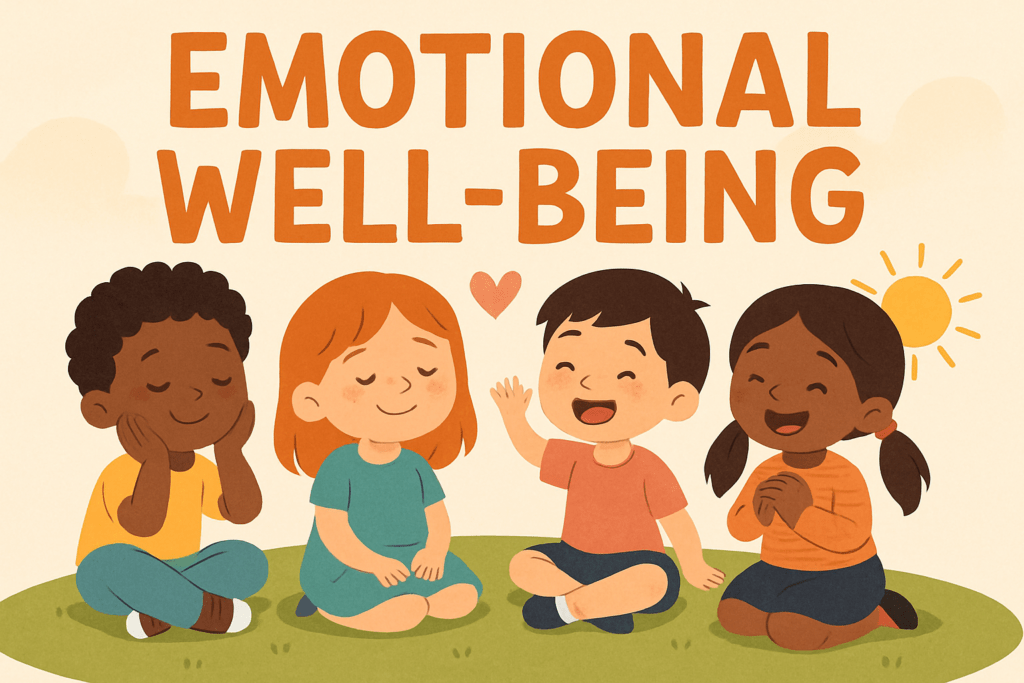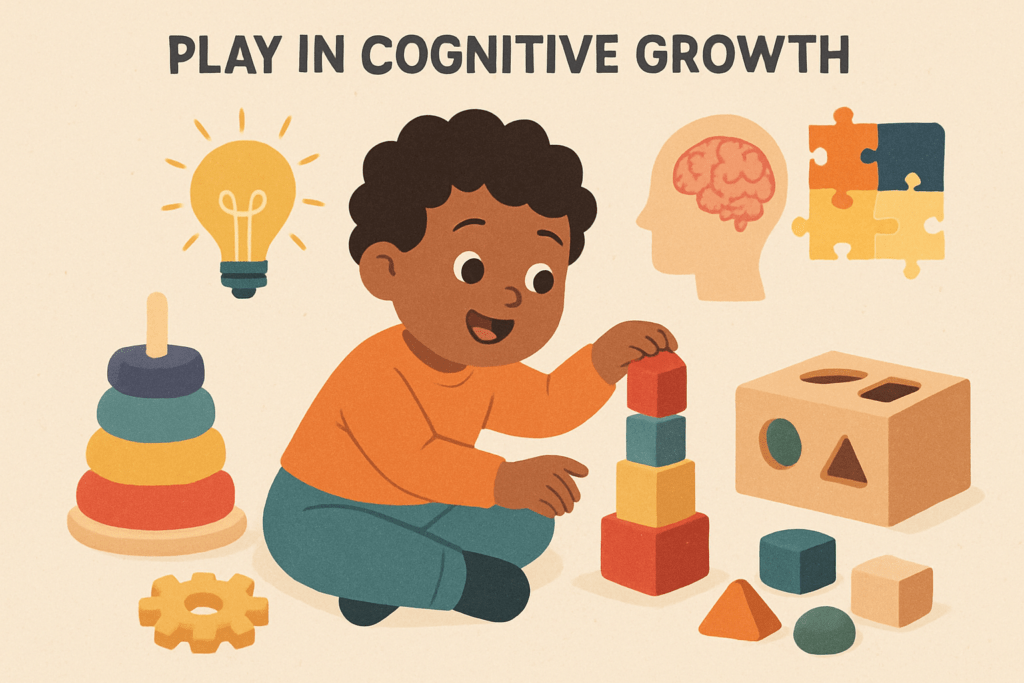Key Milestones in Early Childhood Development: What to Watch For
- Quick intro: Kids don’t grow up overnight, but progress happens fast.
- Highlight importance of knowing early childhood milestones for tracking healthy growth.
- Mention that benchmarks help spot strengths and support areas needing attention.
Key Milestones in Early Childhood Development: What to Watch For
Kids don't grow up overnight—even if it sometimes feels like they sprint from diaper days to running laps around the living room. But change does come quickly. One week you’re cheering a wobbly cruise along the couch, and before you know it, there are full sentences flying across the breakfast table.
That’s why it helps to know what to look for. Early childhood milestones are like mile markers on a fast-moving road. They show you where your child is headed and what kind of progress to expect along the way. Understanding these benchmarks isn’t about ticking off boxes or fueling parent paranoia. It's about having your eyes open to strengths to celebrate, and tuning in if something seems off—so you can offer extra support where it’s needed. In short: milestones help you raise a happy, healthy kid, one bold step at a time.
What Are Early Childhood Milestones?
Milestones are simply the skills or behaviors most kids pick up by a certain age. Think of them like the checkpoints in a video game: roll over, first word, sharing toys—each is a signal that growth is on track. These markers cover all the basics: moving their bodies (like crawling or jumping), language (babbling to sentences), social stuff (waving, playing with others), and how they think or solve problems (stacking blocks, naming colors). You’ll hear phrases like developmental markers or growth benchmarks—both mean those typical skills most kids show as they hit specific ages. They’re not rigid rules, but handy road signs for the journey.
What Happens After Winning Millions?
Winning a life-changing lottery jackpot is every player’s dream, but few are prepared for what comes next. The sudden influx of wealth brings excitement but also a wave of challenges. Many winners find themselves overwhelmed by financial decisions, from managing taxes to making investments that secure their future.
The Financial Reality of Winning
Critical financial decisions surface quickly after winning:
- Taxes and Legal Issues:
- A significant portion of the winnings often goes to taxes.
- Failing to plan can lead to legal troubles.
- Investing vs. Spending:
- Some winners hire financial advisors to ensure long-term security.
- Others spend impulsively without a plan.
- Budgeting for the Future:
- Without proper planning, even large jackpots can vanish quickly.
A Lifestyle Overhaul
A sudden fortune changes life in more ways than one:
- Luxury Purchases:
- Mansions, sports cars, and extravagant vacations become instantly affordable.
- Social Pressure:
- Long-lost friends and distant relatives may reappear, expecting a share of the winnings.
- Privacy Challenges:
- Some winners face unwanted media attention and public scrutiny.
While some winners embrace their newfound wealth, others opt for a low-profile life to avoid pressure and expectations.
Giving Back and Creating a Legacy
For many, wealth isn't just about personal luxury; it’s an opportunity to make a difference.
- Philanthropy and Community Initiatives:
- Donations to charities and community projects.
- Funding scholarships or supporting education initiatives.
- Business Investments:
- Investment in businesses that create jobs and opportunities.
- Revitalization of struggling towns.
Some lottery winners transform from players to philanthropists, proving that wealth can leave a lasting impact. However, not all stories end positively, as many who mismanage their winnings find themselves bankrupt within a few years.
1. Infancy (0-12 Months)
Here’s where it all sparks to life. In year one, growth is rapid and obvious—think less slow-motion, more time-lapse. At first, it's all about control. Babies work hard to master holding their head steady, then rolling over, sitting up, and eventually using their arms and legs like they've discovered secret superpowers.
Language kicks off quietly. Around four to six months, you’ll notice random coos and babbles. It’s not conversation—but it’s the foundation. These sounds are babies flexing their vocal cords and tuning into the music of language. Socially, those first real smiles hit around the two-month mark. They’re early signals that attachment is forming—a big-deal emotional milestone. By the end of the year, you’re likely seeing shy grins for strangers and wide-eyed, excited kicks for familiar faces.
Bottom line: In the first twelve months, growth is equal parts physical movement and emotional connection. These little leaps set the pace for everything that comes next.
2. Toddler Years (1-3 Years)
Here’s where life speeds up. Toddlers hit their stride—literally. One day they’re toddling unsteadily, the next they’re dashing for the door. Walking is a big deal, but it’s just the beginning. Watch for scribbles on every blank surface, as little hands figure out how to draw, stack, and feed themselves (somewhat messily). Language explodes, too: first words build into simple phrases. “More juice” and “all done” start making regular appearances. At the same time, they’re picking up independence and attitude—a mix of wanting to do it themselves and needing a hug when things fall apart. Following two-step directions (“pick up the ball and bring it here”) becomes possible, showing off new thinking skills. Every day brings practice, pride, and the unavoidable chaos that comes with a small human figuring out their place in the world. Don’t blink—it’s over before you know it.
3. Preschool (3-5 Years)
At preschool age, things accelerate—kids don’t just get taller, they get bolder and way more interesting. You’ll see climbing, hopping, and wild runs at the playground, mixed with the budding ability to slow down long enough to draw a stick figure or a smiling sun. This is peak “Why?” phase. Sentences roll out, stories are invented, songs are half-remembered but sung anyway. Social circles crack open: making a friend, learning to share, figuring out how to play nice (and the inevitable squabbles). Imagination rules during playtime. It’s also when childhood progress tracking steps into the spotlight—because this is when gaps or leaps in development tend to show. If a kid is struggling with words or can’t quite find their groove socially, it’s easier to notice. Here, knowing what’s typical helps parents celebrate wins and clue in if something feels off. In short: preschool years are a whirlwind. Strap in, keep an eye out, and enjoy the ride.
Why Milestones Matter
Milestones are the map, not the finish line. Catching delays early means there’s more time for support that actually works—think of it as changing course before the detour gets long. Regular check-ins (not constant worry) let parents notice if something's off, like missing a step when everyone else is on the next rung. Still, it’s not about scoring points. Every kid has their own tempo, and milestones are rough markers, not hard deadlines. Comparing too much just breeds stress. Focus on the path, not the clock.
Growing Together: Encouragement for Parents
Here’s the thing—supporting your kid’s growth isn’t about buying the fanciest toys or enrolling in endless classes. It’s about the basics: talk to them, get down on the floor and play, read together, explore the backyard, even if it’s just poking at rocks. You’d be surprised how much a daily walk or a silly back-and-forth conversation can fuel their development.
Keep an eye out for those lightbulb moments—first steps, goofy scribbles that suddenly look like a sun, or that magical day when they belt out a full sentence. These are the real markers of progress, and they deserve a mini celebration.
Most importantly? Try to have some fun with it. Kids are built to grow and learn. Your job isn’t to rush the process, just to encourage it. If you’re enjoying the ride, odds are your child will, too. Keep it simple and show up; that’s what matters most.
What Happens After Winning Millions?
Winning a life-changing lottery jackpot is every player’s dream, but few are prepared for what comes next. The sudden influx of wealth can bring excitement, but also a wave of challenges. Many winners find themselves overwhelmed by financial decisions, from managing taxes to making smart investments. Some handle it well, while others struggle with reckless spending that drains their fortune faster than expected.
The Financial Reality of Winning
Many winners face critical financial decisions almost immediately:
- Taxes and Legal Issues: A large chunk of the winnings often goes to taxes, and failing to plan can lead to legal troubles.
- Investing vs. Spending: Some winners hire financial advisors to ensure long-term security, while others spend impulsively without a plan.
- Budgeting for the Future: Without proper money management, even the biggest jackpots can disappear quickly.
A Lifestyle Overhaul
A sudden fortune changes life in more ways than one:
- Luxury Purchases: Mansions, sports cars, and extravagant vacations become instantly affordable.
- Social Pressure: Long-lost friends and distant relatives often reappear, expecting a share of the winnings.
- Privacy Challenges: Some winners struggle with unwanted media attention and public scrutiny.
While some winners embrace their new wealth openly, others choose to live discreetly to avoid pressure and expectations.
Giving Back and Creating a Legacy
For some, wealth is not just about personal luxury—it’s an opportunity to make a difference. Many winners choose to:
- Donate to charities and community projects
- Fund scholarships or support education initiatives
- Invest in businesses that create jobs and opportunities
Some lottery winners go from players to philanthropists, proving that wealth can be used to leave a lasting impact. However, not all stories end positively—many who fail to manage their winnings properly find themselves bankrupt within years.
Wrap-Up: Every Child Grows at Their Own Pace
Here’s the bottom line: progress is what counts, not perfection. Kids are on their own timeline, and that’s not just okay—it’s expected. There will be weeks of big leaps, and there will be slow spells where it feels like nothing new is happening (spoiler: plenty is brewing beneath the surface). Those small wins—a new word, a first drawing, a shared snack at daycare—deserve real attention. Keep checking in, keep cheering them on, and don’t sweat the little bumps. Milestones aren’t a scorecard, just a way to stay tuned in and responsive. You’re not racing the clock; you’re here for the ride.


 Founder & Chief Editor
Founder & Chief Editor
